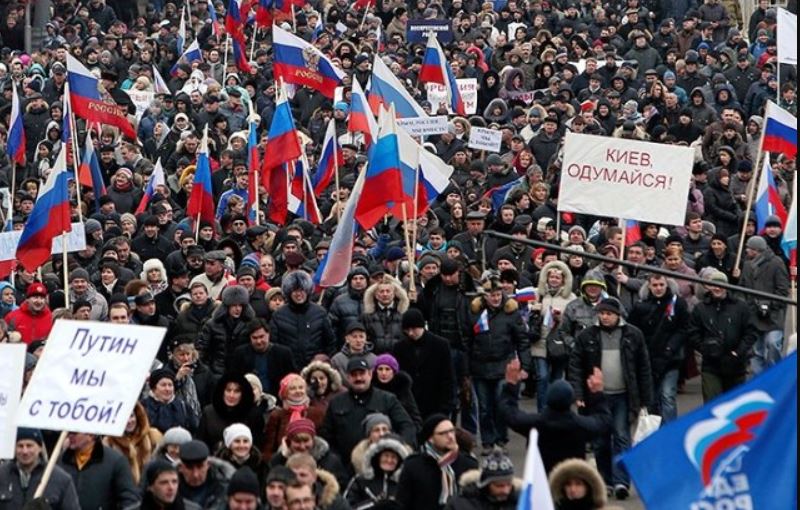How conformists’ “comfort zone” helps governments
Looking at the vox-pops on the streets of Russia, which are broadcast by both Western and local TV channels, we can conclude that the majority of citizens support the war in Russia in Ukraine and repeat the propaganda theses of their government: “We were forced to do it,” “The enemy was at our door,” “We are defending ourselves,” and so on. A natural question arises: do people think differently and are afraid to express their views, or is it their sincere conviction?
In my opinion, most Russians really support Putin’s policy. There are many reasons for this, but we need to understand what “support” means in this case. Russian sociologist Grigory Yudin divides Russian public opinion into three parts at this stage. The first group, about a quarter, is aggressive towards Ukraine and the Ukrainians, as well as the West, ready to shed blood, take revenge, and so on. The second group, again about 25 percent, is against the war, and many of that group, despite repression, arrests, blocking the media, firing people, checking their phones, express their opinion on this or that platform.
But the masses have neither aggressive nor “liberal” aspirations. Half of the citizens have chosen a comfortable position, according to which there is no war. It is no coincidence that the word “war” is banned in Russia, because the word itself is hated by any normal person, especially the representatives of peoples who have seen war, their children and grandchildren. It is in the interest of the people that what Putin is doing now is really a “special operation” that does not cause any harm or pain to anyone, it will now end quickly and everything will fall into place. By the way, since “it does not end quickly,” the Russian government, I think, will soon have to end the war in some way, because this kind of “special operation” can not last for weeks.
Read also
In order to prolong the propaganda effect, the official Russian propaganda puts forward dangerous theses, one of which is “denazification.” If there were really Nazis in power in Ukraine, the people of that country should have welcomed the “Russian Liberation Army” with joy. And since there is no joy, then the people, by that logic, are mostly made up of Nazis. That way you can go very far. And the second such step is to send directives to schools, according to which all teachers are obliged to submit the same propaganda theses of the government about the war to the children of 7th to 12th graders.
Those who refuse to do so (fortunately, there are such teachers in Russia) are fired. The upbringing of children is reminiscent of both Nazi Germany and modern-day Azerbaijan. But the majority of Russians, who have chosen the position of “comfortable ignorance,” do not care. It is known that most people are not interested in politics, especially foreign policy, they gladly swallow the interpretation of events that the government gives them. And this is not a two-week story, this has been the official policy for 20 years and especially for the last 8 years. People “outside of high politics” live their daily worries. They will complain seriously only when serious social difficulties begin.
Usually, after the publication of such considerations, the question is asked on social media: why are you crying over the grief of the Russians and Ukrainians, are we grieving? I will answer. I am interested in the model of social behavior from the point of view of “our troubles.” “Our sorrow,” our main concern today, I think, should be that thousands of our compatriots in Artsakh are cold and live without electricity and gas. Does this concern the majority of our citizens living in warm and bright conditions in Armenia?
Some may say that deep down people are worried. However, this concern, if any, is so “deep” that it does not motivate the Armenian government to take appropriate steps to address this urgent issue. Why did our government “wash its hands” of the people of Artsakh? Because the majority of citizens who voted for it did so. As in the case of Russia, the majority is in the “comfort zone,” thinking that war, deprivation, cold and dark apartments are far from them, they have nothing to do with them… What does “handed over” mean? “What did that poor man have to hand over or not?” This is where it all comes from.
Aram Abrahamyan






















































